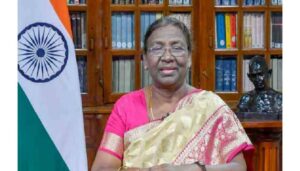Finances for children’s education, marriage a key concern more for Metro women than Tier 1 & 2 women, reveals Max Life India Protection Quotient 2.0 survey

May 9th, 2020, New Delhi: On the occasion of Mother’s Day, Max Life Insurance’s India Protection Quotient 2.0 (“IPQ 2.0) survey in association with Kantar revealed that women in urban India have registered a sharp increase in life insurance ownership and awareness over the last twelve months. While life insurance ownership witnessed 8% increase to 67% among women, term insurance awareness rose by 11% to 55% and term insurance ownership witnessed a 7% increase to 26%. This has led to an increase in the overall protection quotient, which is higher at 35 for women this year as compared to 33 last year IPQ 1.0 survey.
Marking the progress, Aalok Bhan, Director & Chief Marketing Officer, Max Life said, “In the modern Indian context, as more women assume the role of breadwinners and financial providers, dependence of parents and children on them is likely to increase. It is heartening to witness an increase in India protection quotient for women, and subsequent improvement in their financial preparedness to face future uncertainties. At Max Life, we aim to encourage more women and mothers towards embracing comprehensive financial protection and by presenting key findings of our survey on the occasion of ‘Mother’s Day’, we wish to take a meaningful step in the right direction.”
Remarking on the importance of financial planning for mothers, actress and fitness enthusiast Mandira Bedi said, “In an age of empowerment where women are at par with men across all arenas of life and are driving major monetary decisions, planning well for future uncertainties becomes key priority. As a working mother myself, the financial wellbeing of my family remains of utmost concern. With more women scaling the heights of professional success while financial sensibilities are fast evolving, Max Life’s IPQ 2.0 survey offers insightful takeaways that can help women take the right steps in ensuring their family and loved ones are taken care of even in their absence.”
Taking the lead as breadwinners
Along with financial preparedness, the notions of who is a breadwinner also changed rapidly among women in metros, Tier 1, Tier 2. However, there are still 19% working women in metros, 9% working women in Tier 1 and 15% working women in Tier 2 cities that do not consider themselves the breadwinner and cited that as a reason for not buying term insurance.
Metro women more financially anxious about children’s education, marriage as compared to women in Tier 1 and Tier 2 cities
IPQ 2.0 revealed notable differences in the savings and investment mindset of women across metros, Tier 1, and Tier 2 cities of India. Women in metros are more concerned about finances for their children’s education and marriage as compared to women in Tier 1 and 2 cities. While finances for children’s education is a key cause of anxiety for 62% women in metros, 56% women and 54% women in Tier 1 and Tier 2 cities respectively, are anxious about the same. Finances for children’s marriage is a concern for 62% metro women, 53% Tier 1 and 52% Tier 2 women, respectively.
Women save more for children’s future aspirations as compared to men
With greater influx of women in the modern workforce and evolution of gender identities, there has been a change in traditional set-up. While saving for kids’ education is the topmost priority for 69% working women in metros, as against 63% working males in metros that save for it, kids’ marriage is a savings objective for 46% working women in metros as against 42% working men. The same reflects changing financial priorities as more women assume the role of provider in the family.
As the prominence of women and especially working mothers continues to rise, their level of financial strength is also increasing. Their contribution to the family is quite significant and cannot be overlooked, which is what makes planning for future uncertainties extremely important.
For women, it is therefore important to realize their real value in the lives of loved ones and remain adequately covered for future uncertainties. Max Life’s second edition of ‘Real Value tool’ helps one estimate the value of protection cover each individual should look for to ensure their loved ones a sufficient corpus to maintain their current lifestyle.








